|
by Thad Falkner, Head of School As we move into 2020, it’s a natural time for reflection and for contemplating our aspirations for the coming year. What we know as adults is true for children and adolescents, as well: Success is rarely accidental; it most often comes as the culmination of goals that are set and pursued.
While your children may not have any lofty ambitions for the year ahead, this is a natural and worthwhile opportunity for them to experience the process of setting and working toward a goal. Whether they succeed or fail in reaching it, they will receive the invaluable reward of learning grit and resilience. Give it a try! A few things to consider:
Children are uniquely equipped for the practice of goal-setting because of their enthusiasm and joy. Instinctively, parents want these traits to endure, but their approach for doing so is important. Parents can clear the way for children to easily succeed, but that will not empower them for true, long-term success nor cultivate resilience. Conversely, parents can guide their children to success, allowing and encouraging them to work through adversity. This leads to grit, which in turn leads to lasting enthusiasm and joy, because your children will be equipped with appropriate self-sufficiency. Here’s to enthusiasm, joy, and success for our children in 2020!
0 Comments
by Thad Falkner, Head of School Wilson’s mission statement begins with these very important words: “To prepare students for success in an ever-changing world.” We take our mission very seriously, so we measure our success meeting this goal in a variety of different ways. We’re excited to share what we’ve discovered with you today.
Test Scores- Certainly, test scores don’t paint the full picture of a student, but they are a good place to start. Over the past five years, our median sixth grade student has scored between the 90th and 95th percentile on all areas of standardized testing. Secondary School Placement- 100% of our students attend their first or second choice secondary school upon graduating from Wilson. This speaks not only to their academic readiness, but also to the great care and attention given to them and their families as we work together to find what school will be the best fit for each student. On a more personal note, we periodically survey our graduates and their parents to see how well they felt Wilson prepared them for the next step in their journey and what we might do even better in the future. Here’s what we’ve heard recently:
We are gratified to receive lots of personal comments, as well, such as this one: “I give all credit for my child’s secondary school success to the incredible preparation, rigor, support, and encouragement she received at Wilson. She has always challenged herself to take the most rigorous courses available and to embrace leadership opportunities, and she has grown into an accomplished and kind young woman. Thank you for giving her the important foundation she needed to excel.” It’s not the Wilson Way to simply rest on our laurels; we’re a community that is always seeking to grow and improve. Even so, we’re incredibly proud of our successful graduates and the community that helped shape them. by Thad Falkner At Wilson we’re proud of our academically rigorous program. When our students graduate, they are one-to-three years ahead of their peers in core subjects. Their test scores and writing skills also set them apart from their secondary school classmates. These are great accomplishments! We know, though, that our students’ success -- both in school and in life -- depends on more than excellent academic preparation. Both experience and research show that our children also need to be socially and emotionally competent if they are going to make their way in the world.
The need for “soft” skills often shows up in the hardest situations: Being able to regulate our emotions, communicate effectively, and advocate for ourselves under pressure can make all the difference between success and failure. That is why Wilson is intentional about cultivating social-emotional competence in our students over the course of their time here. Just a few examples of the way we do this include:
Our size also ensures that students get plenty of chances to apply the skills they’ve learned in interactions with classmates and teachers. Developing the courage and composure to have a difficult face-to-face conversation with a friend or adult are skills that will serve Wilson students well beyond their school years. by Thad Falkner, Head of School Parents frequently ask about classroom sizes and teaching styles when researching potential schools, but research suggests that they should add something to their list of important considerations: technology use.
The more we learn about the impact of rapidly changing technology on our children, the more we recognize the crucial importance of handling it carefully. While these “digital natives” have certainly benefited from many of these advances, they are being impacted in negative ways, as well. How do we make sure our children are empowered learners and active participants in our increasingly connected world without sacrificing their well-being? If your child is a Wilson student, you may be assured that our technology program is designed to do just that. For many years, Wilson has been a leader in enhancing learning across the disciplines with the innovative use of technology, and we pride ourselves in promoting responsible digital citizenship. Thoughtful, developmentally-appropriate use of both devices and applications is essential to our integrated curriculum. We use technology only where it will enhance the learning process and student engagement, never for the sake of novelty. We build on both our 100+ years of experience teaching children, as well as emerging research, to safeguard our students’ proper physical and social-emotional development. Our early childhood students are outside much more than in front of screens, and when they do use them, it is very intentionally. For example, our senior kindergarten students hike through Forest Park several times a year, noting changes in season, using iPads to photograph and document the transformation of a particular tree. We also equip our parents to make responsible technology use a family affair, sharing our expertise through workshops and communications, as well as bringing in visiting experts. At Wilson, our students experience all of the benefits of integrated learning through innovative methods, always in ways that ensure they will continue to grow and thrive as they should. Want to know more? Wilson’s Technology Timeline Early Childhood: Our youngest students are very much engrossed in imaginative play and making observations about the world around them. At this age, technology is used sparingly and only to support their growth in these areas. Primary: Our primary grade students are immersed in creativity, collaboration, and critical thinking. They use technology to tackle challenges imaginatively and to collaborate with students across the world. Upper: Our oldest students are ready for exceptional work in computational thinking and digital citizenship. They use technology to devise and test ways to solve all sorts of problems, to construct, share, and discuss their learning, and to make educated decisions about using technology that connects us all. Questions to Ask About a School’s Philosophy of Technology
Further Reading on the Developmental Impact of Technology on Children New Strategies to Get Kids to Create Media, Not Just Consume It, by Christine Elgersma, Common Sense Media Media and Young Minds, American Academy of Pediatrics Five Ways to Transform Your Kids’ Screen Time by Devorah Heitner, Time by Thad Falkner, Head of School You knew, of course, that this day would come. Your child’s very first day at Wilson, when you walked up the front steps holding her tiny hand, you hoped that this was a place where she would grow, and growing means changing. Learning to read and write (not just in English, but in French, too!), becoming more independent and resourceful, among so many other things; these were the goals. Not only that, but your sense that it would happen in a better and fuller way at Wilson than at any other school; that’s why you were here. Sure enough, it began to unfold: She not only became one of the kids whose classroom is downstairs, and who has a little buddy rather than a big one, and whose math homework frankly is a little tricky to help her with, she became someone who is both prepared and excited to move on to a new challenge. So here you are, on that day you knew would come, yet are still surprised by.
Even for those of us who have had the privilege of serving the Wilson community for many years, this transformation never loses its wonder. We delight in every part of your child’s time with us and take pride in their growth and progress at every stage, just as you do. We work diligently to make every year your favorite yet, so that it becomes impossible to choose. Still, there’s nothing like seeing a 6th grader step confidently up to the podium to give his graduation speech in front of 200 people, when you remember him as a shy four-year-old who had to be encouraged to raise his hand in class. When you read our “Portrait of a Wilson Graduate,” you will see that we expect a lot from our students as they leave. We state that our graduates are: Curious, Poised and Confident, Creative and Collaborative, Open Minded and Kind, and Ready for the World. That’s a lot to hope for from a twelve-year-old! The crucial difference is that we don’t just hope for it; our faculty and staff, in concert with our wonderful parent community, strive for mission-driven excellence every day in every grade to nurture, challenge, and support our students toward these outcomes. Growing up is hard work, but we remain firmly convinced that there is no better place to do it than at The Wilson School, and we are committed to you being convinced, as well, when you leave. So, here you are. Of course you knew that her hand would not always be so tiny, and that one day she would walk up not only the front steps, but also the steps onto the stage with her graduating class. Still, there is surprise: The surprise that she grew in ways you couldn’t have even imagined that first day; the surprise that you could feel this proud. And though we may not be surprised by all of this, we share in your joy just the same. |
PublicationsWilson in the NewsNews Categories
All
|

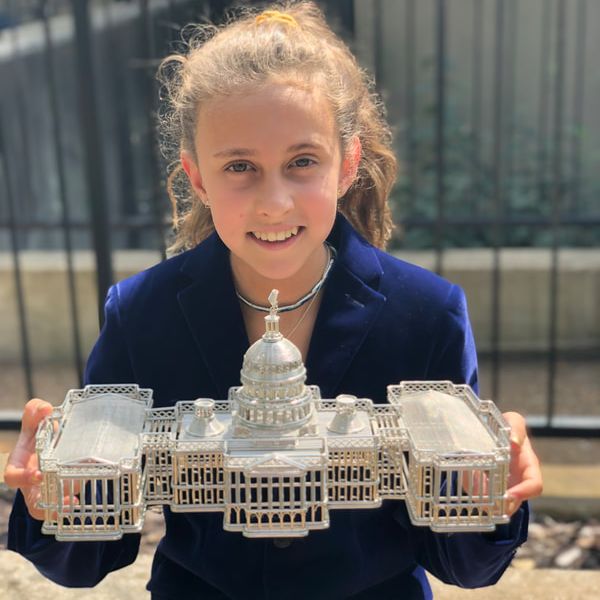
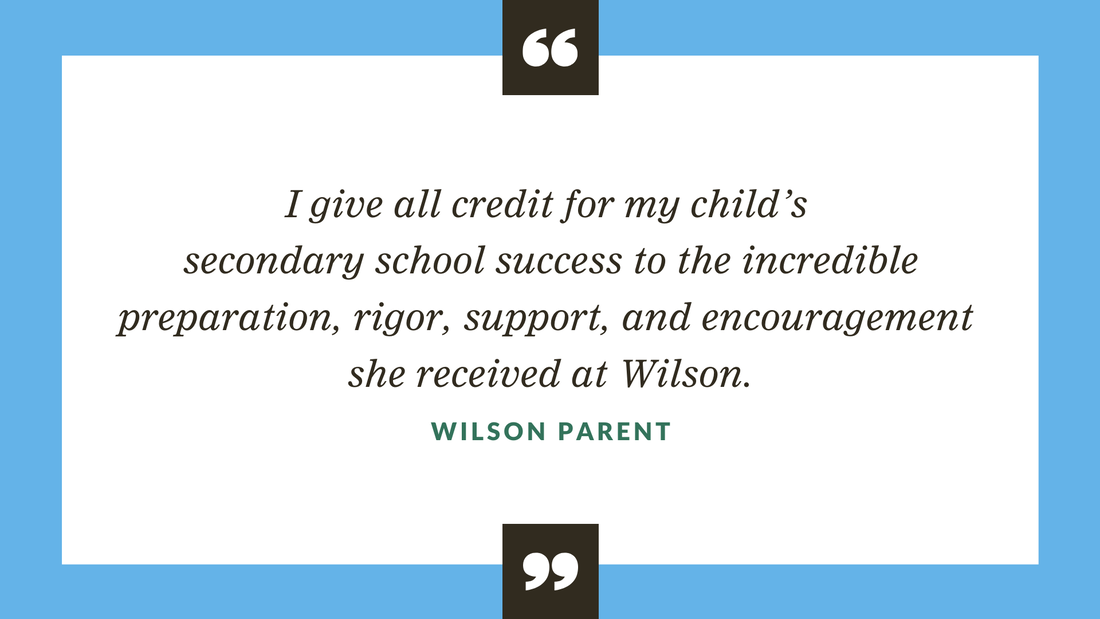
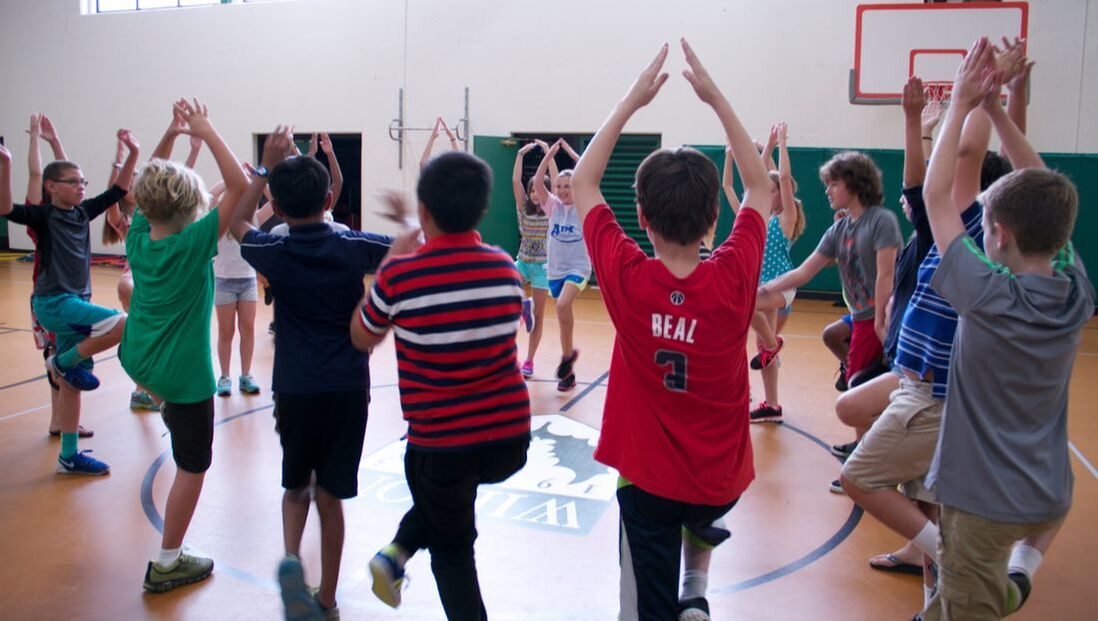
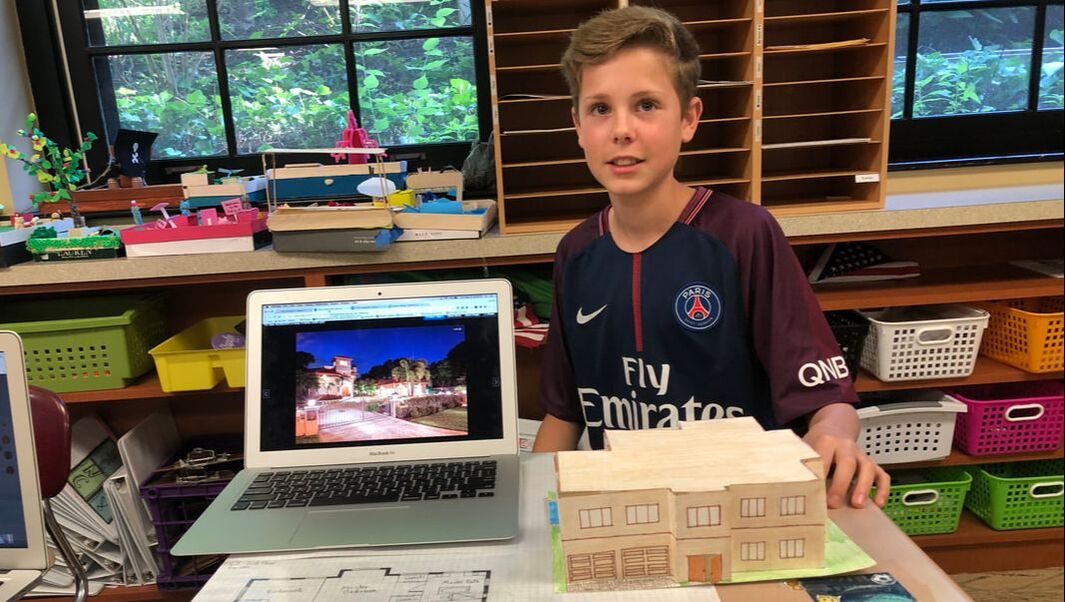

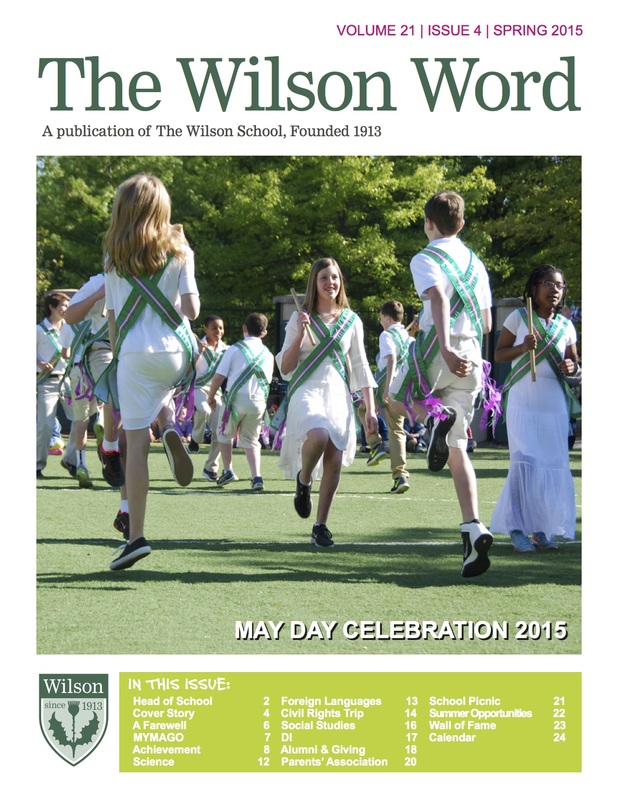
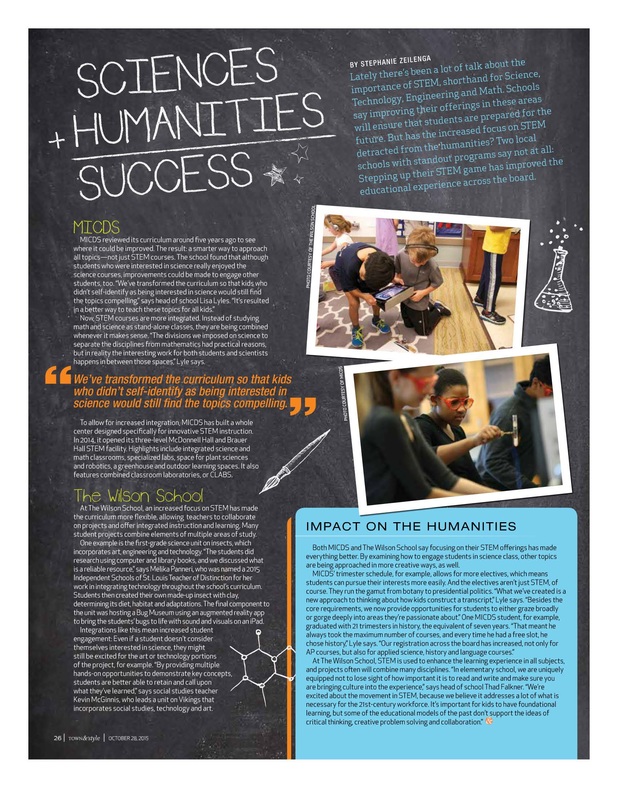
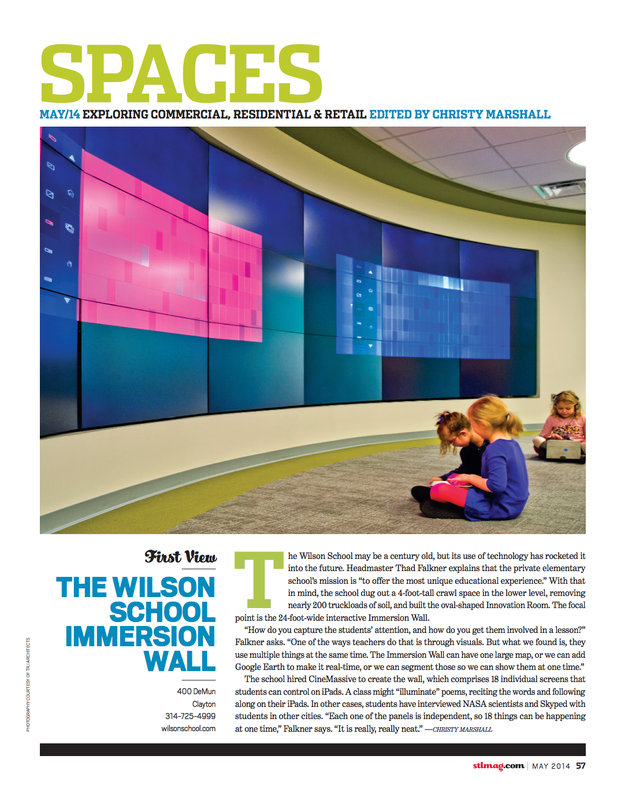
 RSS Feed
RSS Feed
